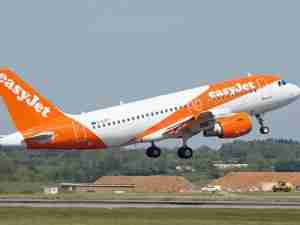A surge in coronavirus infections is delaying, but not derailing, the recovery at several U.S. carriers, including United Airlines Holdings Inc. and Southwest Airlines Co.
Most major carriers said Thursday customer bookings have slowed in recent weeks, signaling through regulatory filings and comments at an industry conference that the path out of the Covid-19 era remains bumpy. Even so, several carriers reported that they’re seeing robust sales for Thanksgiving and Christmas holiday travel and remain optimistic about business demand, contributing to the biggest jump in one airline-stock index in seven weeks.
The carriers’ forecasts were mixed: United projected an adjusted pretax loss this quarter and next—contrary to its previous guidance—while Delta Air Lines Inc. stuck by its projection for a third-quarter profit. Southwest and American Airlines Group Inc. said third-quarter revenue will fall more than previously expected from pre-pandemic levels in 2019.
Even with United’s reduced outlook “it is worth noting that the carrier’s earnings story was starting to work in July,” Citigroup analyst Stephen Trent wrote in a client note. “And it seems fair to assume that a moderation in domestic infection rates might not be that far down the road.”
Airline shares pared early losses as executives spoke at a Cowen transportation conference, with the Standard & Poor’s 500 Airlines index rising as much as 5.2% in the biggest intraday gain since July 20. There were jumps of as much as 7.7% at American, 5.4% at Delta, 4.8% at United and 4.3% at Southwest.
The airlines’ commentary on demand comes after a surprisingly strong summer travel season in the U.S. The pandemic’s persistence has prompted a growing number of corporations, including Apple Inc., Ford Motor Co. and Amazon.com Inc., to delay returning workers to offices and resuming business travel. Such plans had been a key factor in airline industry views that sales would improve as the year winds down.
Southwest had been the first to sound the alarm about the surge in variant cases, saying on Aug. 11 that slowing demand and a rising number of trip cancellations was reducing revenue and would make it difficult to report a third-quarter profit. Within weeks, it was joined by American, JetBlue Airways Corp., Alaska Air Group Inc. and other carriers.
Southwest Outlook
On Thursday, Southwest projected that September revenue would be down as much as 30% from two years earlier, compared with an earlier estimate of as much as 25% lower. Third-quarter revenue will slide as much as 20%, toward the low end of its previous outlook, the carrier said in a regulatory filing. Hurricane Ida and its lingering impacts will end up forcing the cancellation of nearly 2,700 flights in the third quarter. Southwest’s fourth-quarter capacity will be about 5% below two years earlier, rather than level, as previously forecast.
American expects third-quarter revenue to be down as much as 28% from two years earlier as demand continues to slow, compared with earlier guidance for a drop of 20%. Third-quarter pretax margin, excluding special items, will be between minus 10% and minus 14%, compared with an earlier expectation of minus 3% to minus 7%.
JetBlue forecast that third-quarter revenue would fall between 6% and 9% from 2019, compared with a previous estimate of down 4% to 9%. The softness in bookings has extended into the fourth quarter, although leisure demand for the peak holiday periods “will hold up relatively well,” the carrier said in a securities filing.
Business Travel
Delta offered a less-cloudy forecast, affirming its profit outlook for the third quarter, though it didn’t do the same for the fourth. At the conference, Chief Executive Officer Ed Bastian projected that travel would be back to pre-variant levels in the next 30 days. But many companies have slowed plans for employees to return to offices by as much four months, he said.
“The variant has caused a bit of a pause on some segments of our business, particularly business travel,” he said. Corporate demand remains about 40% of the 2019 level, he said.
Hopes for a return of vital international business travel also have been diminished, with European Union countries reimposing restrictions on nonessential travel from the U.S. as virus cases rise. The U.S. also has retained restrictions on inbound travelers from many countries.










